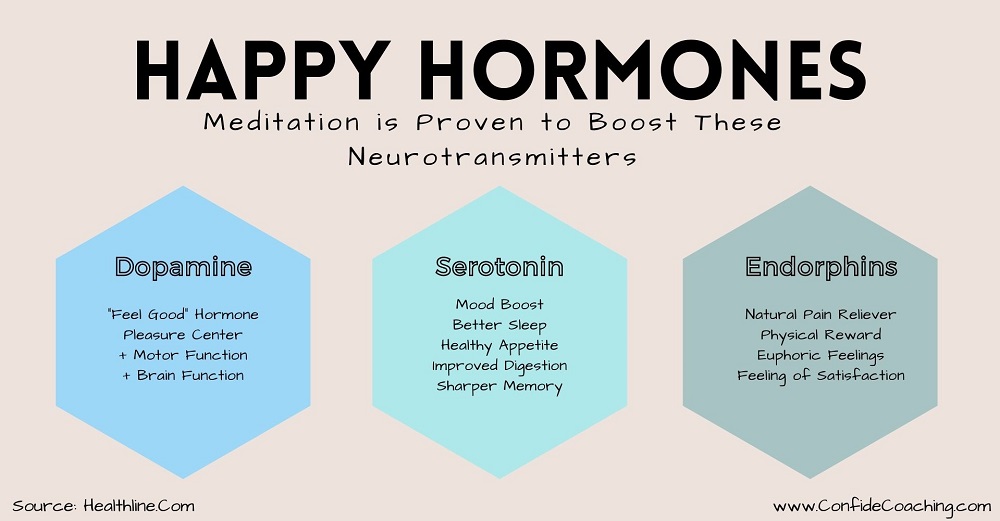
Life can be stressful. At some point or other, you’ve felt overwhelmed, as if everything were too much to handle. It’s really a question of the supply and demand of available emotional resources. Additionally, stress and anxiety can affect your mental health, put your body under duress and even lower your overall quality of life.
Proper stress management is key to your mental health and overall well-being. Also, it equips you with coping strategies that significantly impact how you react and respond to stressful situations.
Here’s how mindfulness meditation can help you cope with and reduce your stress levels.
What Happens in Your Body When You’re Stressed?
If you frequently find yourself feeling frazzled and overwhelmed, your body and mind are paying a high price. In addition, chronic stress damages your health, relationships, and your quality of life. Stress is your body’s way of reacting to any kind of threat or demand.
When you sense danger – whether real or imagined – your body responds by releasing a flood of stress hormones. Your nervous system isn’t particularly good at distinguishing between physical and emotional stresses. Moreover, your body can react just as strongly to an argument as it would in a life-or-death situation.
Being in a constant state of agitation can physically damage your body and cause undue harm to your mental and emotional well-being. You become more vulnerable to anxiety and depression, disrupted sleeping patterns, thinking and memory problems, as well as a host of physical health issues such as heart disease.
In recent years, meditation has become one of the most popular ways to relieve stress and anxiety. It’s an age-old practice that helps people to cope with several psychological and health problems.
Mindfulness-Based Stress Reduction

You don’t have to be a Buddhist or join an Ashram to benefit from meditation.
Spending only a few minutes a day in meditation can restore inner peace and calm to your life. Mindful mediation has been scientifically proven to reduce your body’s stress response by quieting the thoughts that keep your stress levels high.
For instance, mindfulness-based stress reduction (MBSR) is a healing program that combines mindfulness, meditation, and yoga, which has been proven to be an effective stress management tool.
Pioneered by Professor Jon Kabat Zinn in the 1970s, this program explores patterns of behavior, thinking and emotions that increase stress levels and undermine your health. By combining meditation and yoga, you can cultivate awareness, calm the mind, and become centered in your body.
As a result, your stress response changes, enabling you to recover much more easily from stressful situations. Through mindfulness-based exercises and examining body-mind interactions, the MBSR results in:
- Blood-pressure reduction
- Reduced stress-hormone levels
- Regulation of emotional reactivity
Let’s look at some specific ways mindfulness meditation can help you manage stress and cultivate better health.
1. Meditation reduces the effects of the stress response
When you meditate, you journey from activity to silence. Mindfulness is a state of restful alertness that decreases heart rate, normalizes blood pressure, and results in more efficient oxygen use by the body. In essence, the body experiences the opposite of the fight-or-flight fear response.
2. Meditation increases your well-being neurotransmitters
Mindfulness meditation results in a state of deep rest which triggers your brain to release neurotransmitters that enhance this focus, relaxation, and inner calm. Serotonin, for instance, has a calming effect and eases tension in your body. A rush of endorphins can give you a “runner’s high” and decrease feelings of pain, while dopamine regulates your mood and enhance pleasure.

3. Meditation releases emotional turbulence
Mindfulness meditation improves focus and attention. It brings clarity into your life which allows you to observe your thoughts and feelings with greater objectivity. Such a state reduces emotional reactivity while giving you the space to process your emotions. Repressing emotions doesn’t lead to emotional well-being. Instead, it adds to toxic and unhelpful ways of thinking.
Mediation allows you to move through emotions without ruminating and fixating on them. This way, you can let go of old patterns of thinking that create stress and heighten negative emotional responses.
What If You Can’t Meditate?
Many people struggle to meditate. You may struggle to concentrate as soon as you close your eyes. If you feel like this, don’t worry. Meditation is a skill like any other; you get better at it with time. In fact, worrying about “doing it right” is probably why you can’t meditate.
Contrary to popular belief, meditation isn’t the absence of thoughts or emotions or suppressing them. Rather, it’s about cultivating awareness of your thoughts, accepting them non-judgmentally, and letting them go.
Don’t go into mediation expecting instant bliss. It takes time, dedication, and quite a bit of effort to build a lasting meditation practice. So, it’s not that you can’t meditate – you just need to be more patient with yourself.
Meditate Your Way to a Better, Healthier Life
Mindfulness meditation brings you to the present moment and cultivates emotional regulation by reducing rumination and worry. Taking the time to pause and investigate the present experience, including your thoughts and emotions, memories, and body sensations, increases your emotional resources helping you adapt to life’s stresses.

Paul Strobl, MBA, CPC
Owner of Confide Coaching, LLC
Paul is a Master Life Coach for GenX and GenY executives and business owners. Originally from Houston, Texas, he has been location independent for most of his adult life. He currently resides in the Rhodope Mountains of Bulgaria near the Greek border with his brilliant wife, 14-year-old stepson (officially adopted in 2021!) and a Posavac Hound rescue.

